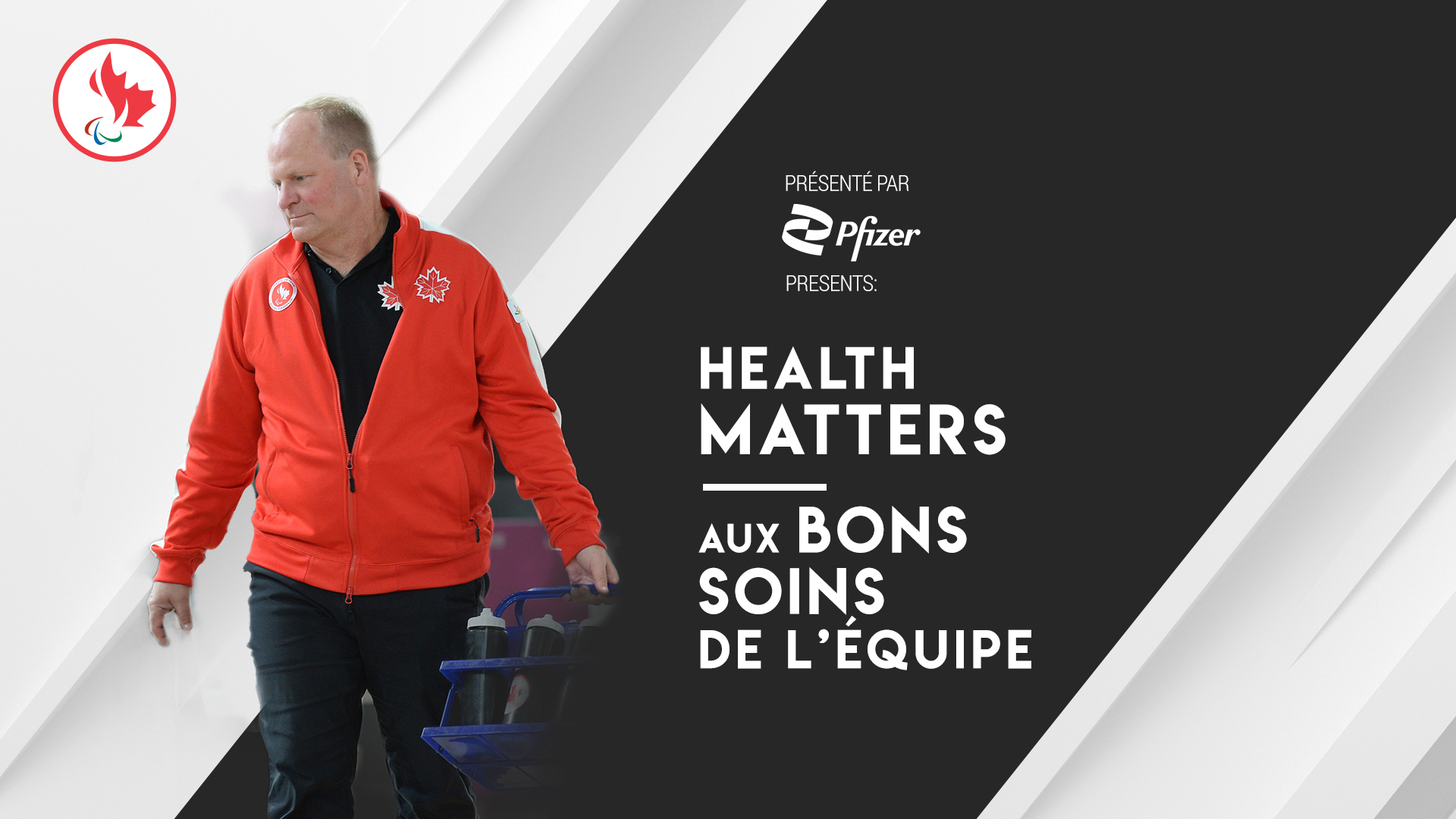Health Matters: Dr. Andrew Marshall ready to support Canada’s Paralympians
CPC’s Chief Medical Officer to lead health team in Tokyo

As the contingent of 128 Canadian Para athletes prepare to compete in Japan at the Tokyo 2020 Paralympic Games, they’ll be joined by another, more behind-the-scenes team: the medical staff, led by Dr. Andrew Marshall.
The core health team includes three doctors, five therapists, a mental health practitioner and a clinic manager. In total there will be a team of seven physicians, consisting of an orthopedic surgeon, physiatrists, primary care sports medicine doctors and family doctors. A specialized therapy team of more than 23 professionals including physiotherapists, massage therapists, physiologists as well as mental health and mental performance healthcare providers will round out the team.
Together, they’ll work out of a clinic fashioned and organized by Marshall, the Canadian Paralympic Committee’s Chief Medical Officer for these Tokyo Games as well as for the upcoming Beijing 2022 Paralympic Winter Games.
Marshall, an orthopedic surgeon specializing in sports medicine and medicine of the knee, has been working in the Olympic and Paralympic Movements for nearly 15 years, beginning in Rio de Janeiro at the Pan American Games in 2007. He’s built and staffed clinics on four continents, making sure Canadian athletes are comfortable and cared for throughout the duration of the Games.
“From a medical point of view, the Paralympics is a more challenging environment,” he says.
“There’s a variety of abilities and illnesses within the sports to be sure, but medically, you also have to be thinking way more outside of the box on things. It’s not just ‘Oh, I have an earache or a sore stomach.’ There are chronic illnesses in some people and seeing how that has been impacted with international travel or life in the Athletes’ Village is a key consideration.”
Marshall says when it comes to providing care for the Para athletes, he takes his cues from the individual.
“They know their bodies. They know what works for them,” he says. “There’s a lot more listening to the patient as opposed to telling the patient.”
These Paralympic Games will have their own unique issues, borne primarily out of a global health crisis. While the 2020 Olympics and Paralympics were postponed for a year due to the coronavirus pandemic, as vaccines became widely available in late 2020, there was renewed hope the Games could be held safely.
While Marshall is encouraged by the numbers of vaccinated athletes heading to the Games, he knows there are still potential risks facing the team.
“There’s been so much time and energy focused on COVID that in some ways there’s the temptation to forget about the regular things as we get into thinking about the Games,” he warns.
Tokyo in August is hot and humid, averaging about 27 degrees daily. It can significantly impact an athlete’s performance, as well as their health.
“The heat is still going to be there,” Marshall says. “Some may say it could potentially be worse because we’ll be wearing masks and, in some cases, additional personal protective equipment (PPE).”
Athletes will also face the additional stresses of more COVID testing and screening. There will be the challenges of adjusting to increased pandemic-related restrictions. Acclimating to the immense time difference from Canada to Japan – up to 16 hours in some areas – could affect athletes’ health. There’s a likelihood these factors can impact anxiety levels and mental health amid an already high-stress environment, Marshall says. The medical team is ready for it.
“The clinic is going to be the clinic,” he asserts. “The care is going to be the care. We’ll roll with it. In medicine, you worry about 112 different things, hoping that you never see them. In these Games, there’s 125 instead of 112.”
After great planning and preparation and a year delay, Marshall and his team are eager to get to their clinic in Japan to provide care for Canada’s Paralympians – though ideally not for anything too serious.
“We’re like firemen,” he says. “We’re there just in case. Hopefully, from a medical point of view, we’re bored.”
Health Matters, presented by Pfizer, shares stories of the important team behind the team, supporting the athletes’ health and wellness.
"*" indicates required fields
"*" indicates required fields